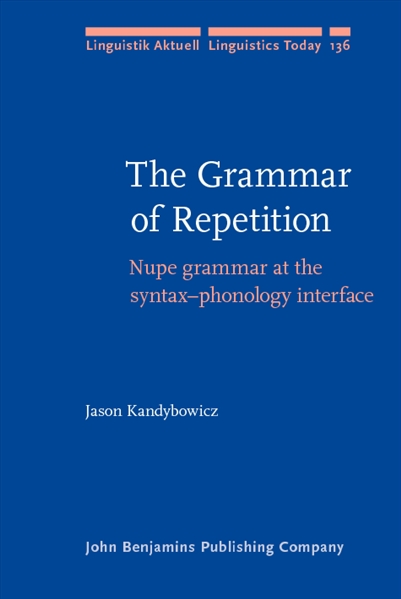
Displacement is a fundamental property of grammar. Typically, when an occurrence moves from one position to another it is pronounced in only one of those environments. This was previously thought to be a primitive/irreducible ...
Displacement is a fundamental property of grammar. Typically, when an occurrence moves from one position to another it is pronounced in only one of those environments. This was previously thought to be a primitive/irreducible property of grammar. Recent work, however, suggests that it follows from principled interactions between the syntactic and phonological components of grammar. As such, the phonetic character of movement chains can be seen as both a reflection of and probe into the syntax-phonology interface. This volume examines an atypical outcome of movement operations, in which multiple copies of the moved element are pronounced. This situation manifests itself robustly in Nupe, a Benue-Congo language of Nigeria. The existence of movement-driven multiplicity, however, raises a tension of the descriptive-explanatory variety. In order to achieve both measures of adequacy, movement theory must be supplemented with an account of the conditions that drive and constrain multiple pronunciation. This book catalogs these conditions, while bringing to light numerous undocumented aspects of Nupe.
Read Full Description >>
|
ISBN: 9789027255198 |
£88.00 |
